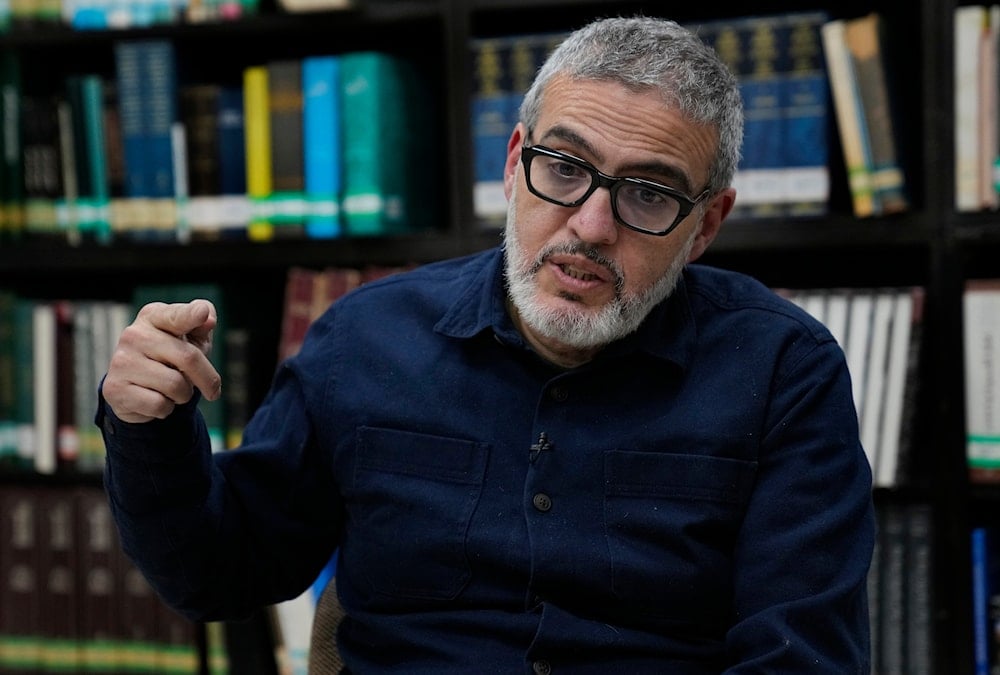Doctor Ghassan Abu Sitta defeats Germany's Schengen Area travel ban
Abu Sitta and the International Centre of Justice for Palestinians (ICJP) said that the decision to lift the ban came after a German court accepted the appeal submitted by his lawyers.
-

Doctor Ghassan Abu Sitta, a Palestinian-British plastic surgeon specializing in conflict medicine, speaks during an interview with The Associated Press at the Institute for Palestine Studies in Beirut, Lebanon, Saturday, December 9, 2023. (AP)
Palestinian-British doctor Ghassan Abu Sitta announced on May 14 that the travel ban stopping him from entering the Schengen Area countries in the European Union has been lifted.
The International Centre of Justice for Palestinians (ICJP) said that the decision to lift the ban came after a German court accepted the appeal submitted by his lawyers.
I am grateful to Alexanded Gorski, ICJP lawyers and ELSC for their unwaivering support. We will not be silenced https://t.co/azxMlMWT9w
— Ghassan Abu Sitta (@GhassanAbuSitt1) May 14, 2024
This successful legal appeal comes after he was banned from entering France and Germany in recent weeks where Abu Sitta was due to speak about the 43 days he spent in Gaza in October and November last year.
Attempts to stop him from testifying came after he had already testified before the International Court of Justice (ICJ) in the genocide case filed by South Africa against the Israeli occupation.
After leaving Gaza, where he treated thousands of injured Palestinians, Abu Sitta was keen all through the last period to show the reality of hospitals and the health sector and the tragic humanitarian conditions that Gaza is going through as a result of the Israeli war against the latter.
Abu Sitta talked about the cases he came across during his work in Gaza where he witnessed cases of extremely difficult injuries, especially among children, due to the advanced weapons being used by the IOF against Gaza.
HRW demanded explanation from Germany over Ghassan Abu Sitta's EU ban
After being blocked from entering France and the Netherlands earlier this month, Human Rights Watch requested the German government provide a public explanation for its Schengen-wide ban on Palestinian-British surgeon, Ghassan Abu Sitta.
"Germany should immediately explain why it has denied him entry and imposed this far-reaching ban on a leading health professional to speak in Berlin, Paris, and The Hague about what he witnessed in Gaza," said HRW UK Director Yasmine Ahmed.
Abu Sitta revealed his intention to challenge his entry ban in the German courts and perhaps the European Court of Human Rights.
This came after the Palestinian ambassador invited the surgeon to attend an event in The Hague on the 76th anniversary of Nakba Day on May 15, but the surgeon revealed to HRW that Dutch officials notified the ambassador of the ban.
Still, he was told he would be permitted entry for a meeting with the Hague-based Organization for the Prohibition of Chemical Weapons (OPCW) to brief the Director General on the use of white phosphorus by Israeli forces. The catch is that he would be allowed to enter only if he were to leave immediately after.
On April 24, the HRW asked Germany for clarification on how the ban is in line with the country’s obligations to freedom of expression, assembly, and non-discrimination, while also calling on the British and Scottish governments to pressure Germany.

 3 Min Read
3 Min Read








